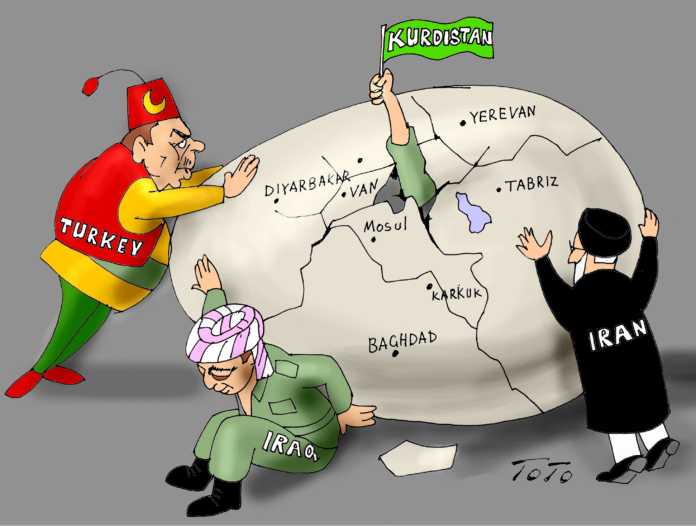The Kurdish issue is one of the most intricate political jigsaw puzzles for anyone to fully comprehend, let alone solve.
The Kurds are spread throughout the Middle East, causing problems to host countries and in return, they are being affected by the governments of those countries.
An estimated 40 million Kurds live in Turkey, Iraq, Iran, Syria and Armenia. The Kurds constitute almost one third of Turkey’s population, making up 25 million out of the total of 80 million. Eight million live in Iran, while the rest are divided among other counties. Like Iranians and Armenians, the Kurds are of Indo-European stock, while the rest of Turkey’s population have descended from Central Asian invaders of the region.
Through the last century, Armenia has been the only country which has recognized the ethnic and cultural rights of Kurds, both during the Soviet era and after independence.
Throughout their history, the Kurds have never enjoyed a sovereign state, although they have aspired to and struggled for it. Having lived under different regimes and geographically distant areas have left their impact on Kurdish aspirations and have divided them around their common goals.
The Kurds have been used against the Armenians by the Sultans and then by the Ittihadist government of the Young Turks during the Armenian Genocide. The Hamidieh Units, which were the most ferocious persecutors of the Armenians, were mostly composed of Kurds.








